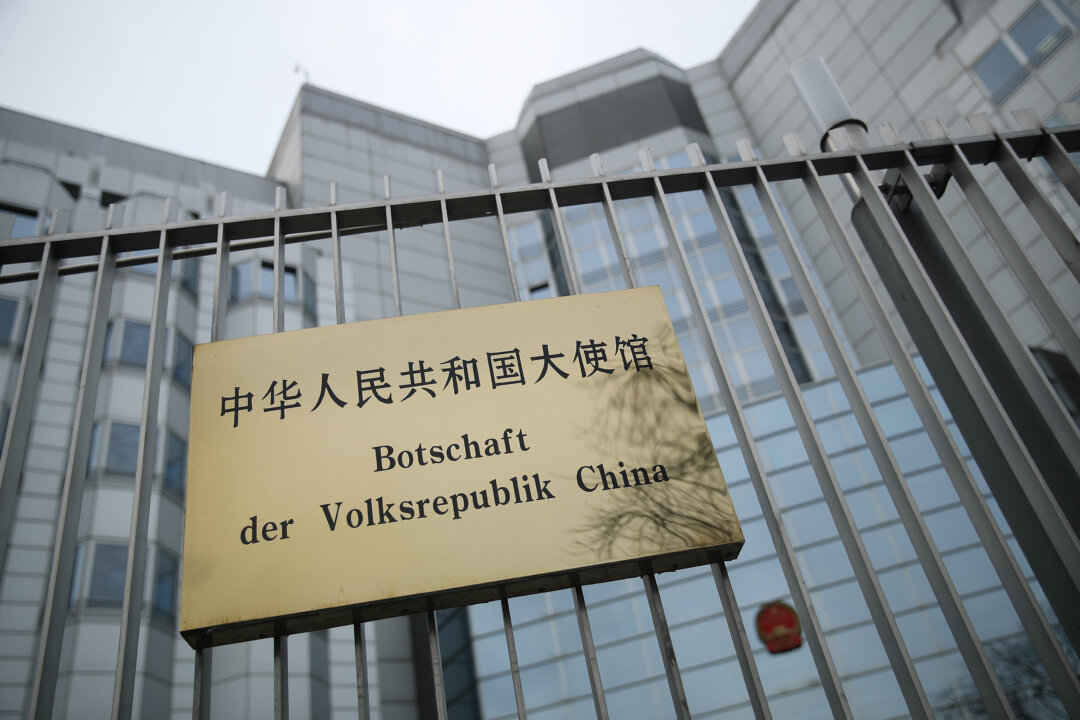The suspects allegedly obtained information on several critical technologies, including sonar systems, aircraft protection systems, and armored vehicle motors.
The federal prosecutor’s office in Germany said on Jan. 9 that it has charged three people for handing over intelligence and technologies that could have military applications to the Chinese Communist Party (CCP).
The accused, all German nationals, also purchased three “special lasers” from Germany, which were ultimately financed by the CCP’s top spy agency and shipped back to China without the necessary authorization, according to a statement from the prosecutor’s office. German authorities did not disclose further details about the lasers but said the items are subject to the EU’s dual-use export control regulations.
The news emerges amid growing scrutiny of the CCP’s espionage efforts abroad, especially following a flurry of arrests in Germany, the United States, and elsewhere.
Among the accused, one suspect, identified as Thomas R., remains in custody. The other two—married couple Herwig F. and Ina F.—were arrested in April 2024 but were later released when their arrest warrants were suspended. Ina F. was freed on Oct. 2, 2024, and Herwig F. followed suit 10 days later.
Prosecutors alleged that prior to his arrest, Thomas R. had been acting as an agent for China’s Ministry of State Security—a top CCP espionage agency—since 2017. Thomas R. allegedly collaborated with the couple, who use their business in Dusseldorf, western Germany, to contact various companies and scientific institutions.
The trio was accused of repeatedly collecting vital information that could bolster the CCP’s maritime combat capabilities since February 2017. The data were said to have been funneled to an unnamed employee of the CCP spy agency who had established contact with Thomas R.
According to the prosecutor’s office, the suspects obtained information on several critical technologies, including boat engines, sonar systems, aircraft protection systems, armored vehicle motors, and drones that have potential applications in military endeavors.
One specific case highlighted by the prosecutors involved the couple’s cooperation with an unnamed German university to facilitate a “knowledge transfer” to China.
The first phase of this collaborative project involved preparing a study on state-of-the-art ship engine technology for a Chinese “contractual partner,” who was allegedly supported by the CCP spy agency employee. The project itself received financial support from CCP authorities, the prosecutor said.
In response, China’s foreign ministry warned German authorities against creating “obstacles to the healthy and stable development” of relationships with China, Guo Jiakun, the ministry’s spokesman, said at a regular briefing in Beijing.
In recent months, German investigators have arrested or indicted several individuals on charges of espionage on behalf of the CCP, including a U.S. citizen who was arrested in Frankfurt last November.
That man, identified by federal prosecutors as Martin D, had worked for the U.S. military in Germany. According to the prosecutor’s office, he contacted agents from the Chinese communist regime, offering to transmit sensitive information from the U.S. military to a Chinese intelligence service.
That incident came just a few months after German authorities announced the arrest of a Chinese national in Leipzig, eastern Germany, who worked for a logistics company that provides services to transport hubs, including the Leipzig/Halle Airport, which handles both passengers and freight.
Identified as Yaqi X, the suspect was accused of providing flight and freight information to Chinese intelligence services, including information about the transportation of military equipment and people connected to a German defense company.
The case is linked to the high-profile arrest of a longtime aide of a German lawmaker and a member of the European Parliament earlier last year.
Yaqi X is suspected of passing information to Jian Guo, a German national arrested in April 2024. Guo was accused of relaying information about discussions and decisions in the European Parliament to the CCP intelligence agency, and spying on Chinese dissidents in Germany.
Catherine Yang contributed to this report.

